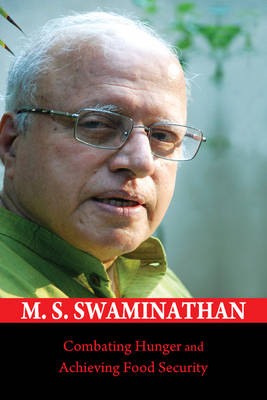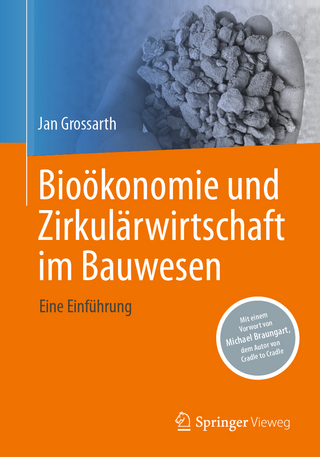
Combating Hunger and Achieving Food Security
Cambridge University Press (Verlag)
978-1-107-12311-3 (ISBN)
The issues that need to be addressed in combating hunger and achieving food security are highlighted in this book by a great Indian geneticist. It also discusses the major causes of chronic and hidden hunger and emphasises the need to redesign the farming system based on nutritional considerations. The role of an effective monsoon management programme to maximise its benefits is examined. There are chapters that analyse the importance of biodiversity conservation and enhancement and farmer skill development. Important issues to increase agricultural production including investment by financial institutions in agriculture and rural development, women's role in agriculture and youth employment in rural livelihoods are discussed in great detail in the text. The book concludes that there must be synergy between scientific knowledge, political will and farmers' active participation to achieve the goal of overcoming chronic and hidden hunger in the populations of developing countries.
M. S. Swaminathan is the founder chairman of the M. S. Swaminathan Research Foundation. He studied at the Plant Breeding Institute, University of Cambridge, and earned his PhD in 1952. He has contributed significantly in the areas of agricultural science, food and nutrition and been described by the United Nations Environment Program as the 'father of economic ecology'. He was awarded the Ramon Magsaysay Award for Community Leadership in 1971, the Albert Einstein World Science Award in 1986, and the first World Food Prize in 1987. He is a Fellow of the Royal Society of London, the US National Academy of Sciences, the Russian Academy of Sciences, the Chinese Academy of Sciences, and the Italian Academy of Sciences. He was a member of the Upper House (Rajya Sabha) in India from 2007 to 2013. Swaminathan was Director General, International Rice Research Institute, the Philippines, from 1982 to 1988. He has published a number of articles in national and international journals.
Foreword; Preface; Acknowledgements; List of abbreviations; 1. Genesis and growth of the yield revolution in wheat; 2. Our agricultural heritage; 3. Shaping our agricultural destiny; 4. Thrust on farm revival; 5. Nutri-farm movement; 6. Nutrition-sensitive agriculture; 7. Food losses and food waste; 8. Rice in zero hunger challenge; 9. Monsoon management; 10. Importance of ecological conservation; 11. Caring for ecology and heritage; 12. Conserving biodiversity; 13. Overcoming hidden hunger through aquaculture; 14. Biofuels – the way to go; 15. Food security; 16. Vigilance for sustainable food security; 17. Food security and social protection; 18. Food security and its role; 19. Sustaining the livestock revolution; 20. Challenges in the year of science; 21. Agriculture and humanism; 22. Fostering the science of science communication; 23. Olympic move for saving children; 24. Youth: the agents of change; 25. Role of women in agricultural production; 26. Know-how to do-how; 27. From Bengal famine to right to food; 28. Financial institutions and fighting food inflation; 29. Public good research in agriculture; 30. The future of Indian agriculture; Bibliography.
| Erscheinungsdatum | 31.01.2016 |
|---|---|
| Verlagsort | Cambridge |
| Sprache | englisch |
| Maße | 160 x 236 mm |
| Gewicht | 420 g |
| Themenwelt | Naturwissenschaften ► Biologie ► Ökologie / Naturschutz |
| Naturwissenschaften ► Geowissenschaften | |
| Technik ► Lebensmitteltechnologie | |
| Technik ► Umwelttechnik / Biotechnologie | |
| ISBN-10 | 1-107-12311-9 / 1107123119 |
| ISBN-13 | 978-1-107-12311-3 / 9781107123113 |
| Zustand | Neuware |
| Haben Sie eine Frage zum Produkt? |
aus dem Bereich


